Rote PROJECT
Envisioning a “Resilient Rote”
BACKGROUND
Rote Project was first initiated in 2021 with the goal of developing a programme focused on the human aspects of marine conservation. Our team has been scoping Rote since 2015, starting with an investigation into local shark and ray fisheries. By working with local fishers to obtain catch data and collaborating with boat owners to carry out underwater investigations, we have achieved a broader understanding on the current state of marine conservation.
Living among the community and observing both the issues and potential of the coastal environment in Rote, we were inspired to expand our work to target the entire ecosystem, with humans being a part of nature, instead of apart from nature. Over the years, we have built a team of young conservationists to champion Rote Marine Conservation.
Our hope from the very beginning has been a “Resilient Rote”. To see the community invest in their own natural resource management, thrive within their own environment and be as equipped as possible to combat climate change. To achieve this, our project incorporates three key elements: science, education and community development. We believe that a synergy of these elements would orchestrate successful conservation of the wider coastal environment in Rote.
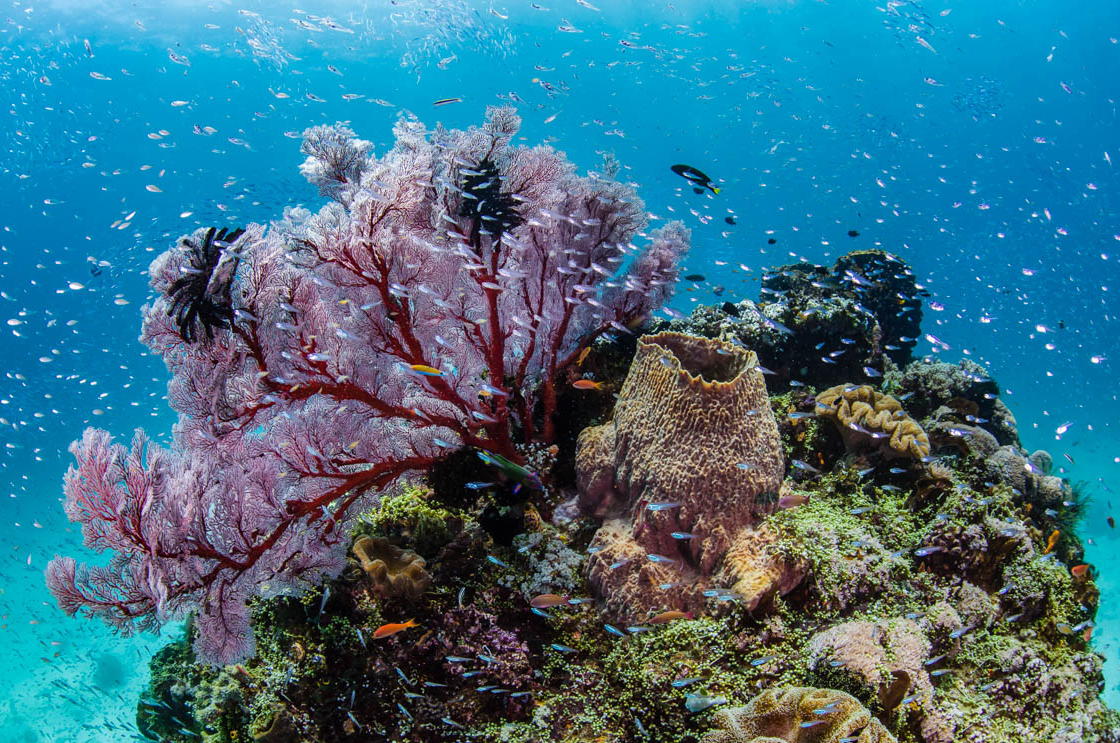
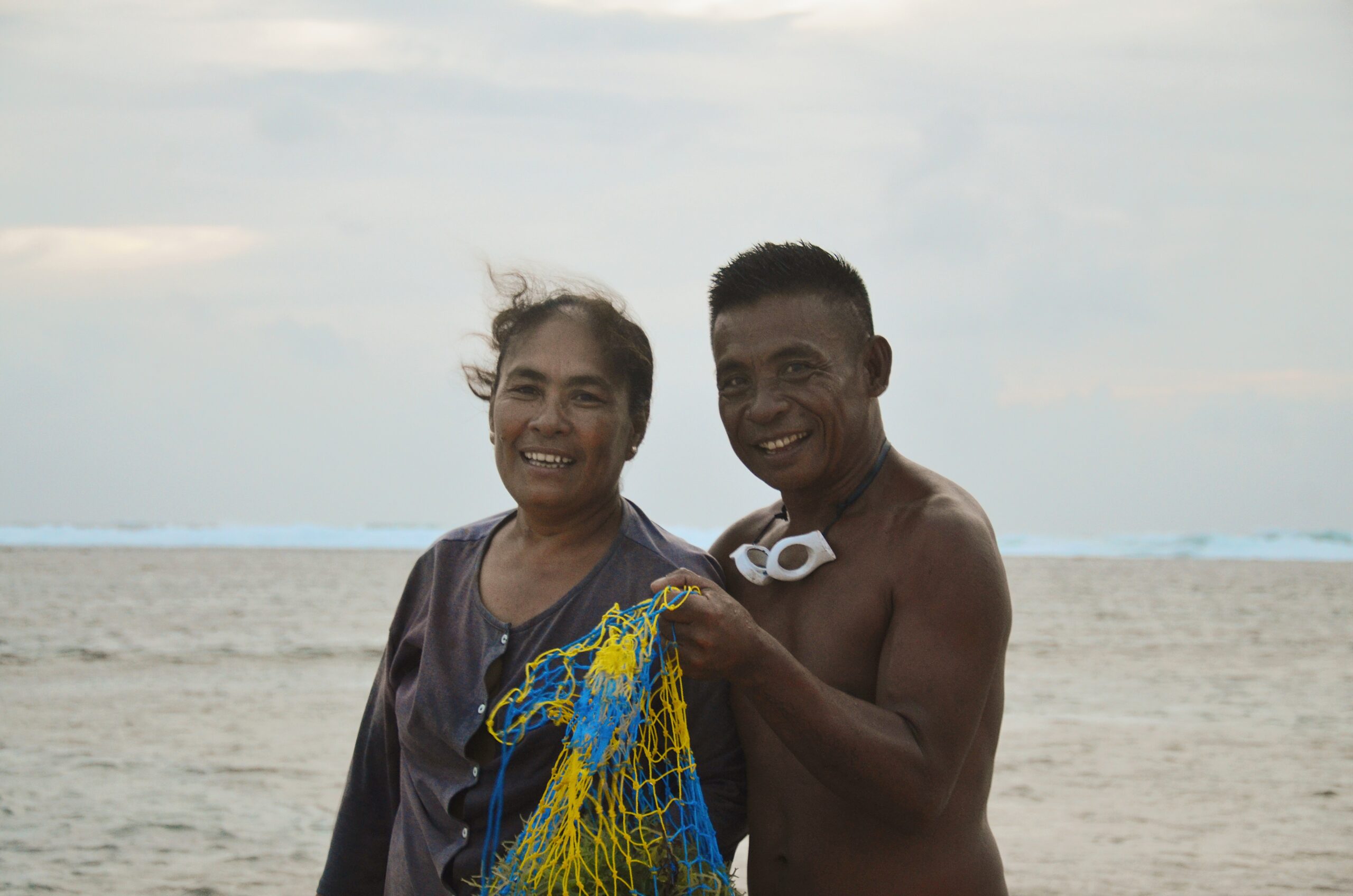
through science
In order to protect marine wildlife, it is crucial to understand the past and current state of the local fisheries.
Our Science Officer works together with local fishers, enumerators, as well as other local stakeholders that work in the marine sector to obtain valuable information that could aid in developing the most appropriate conservation approach.
“I hope that the wildlife monitoring program that involves the community and local enumerators can bring about great outcomes. Obtaining data on the biodiversity and abundance of native wildlife would guide us in determining and developing the appropriate conservation approach to be implemented in Rote waters.”
– Gloria Lado, Science Officer (2022)
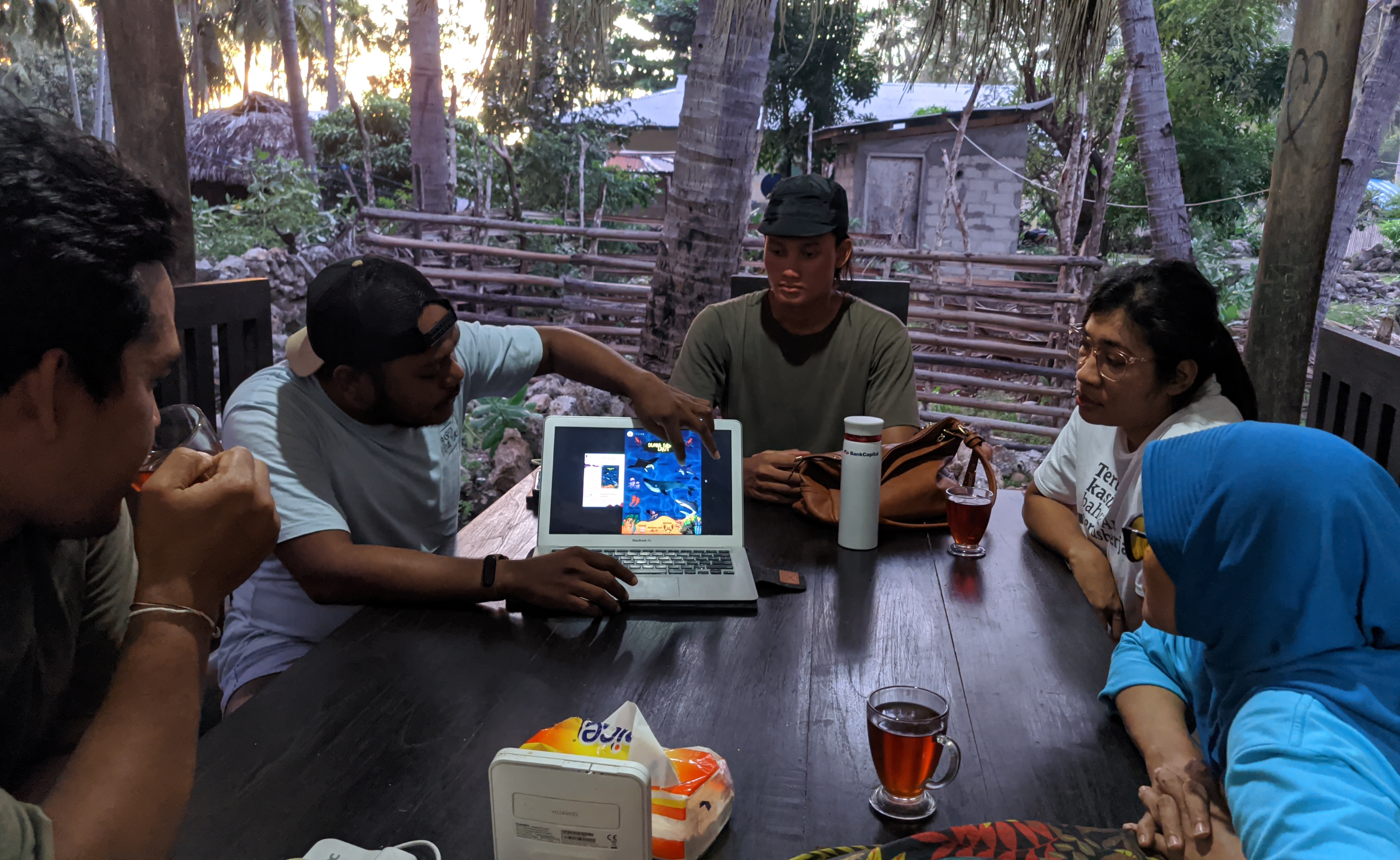
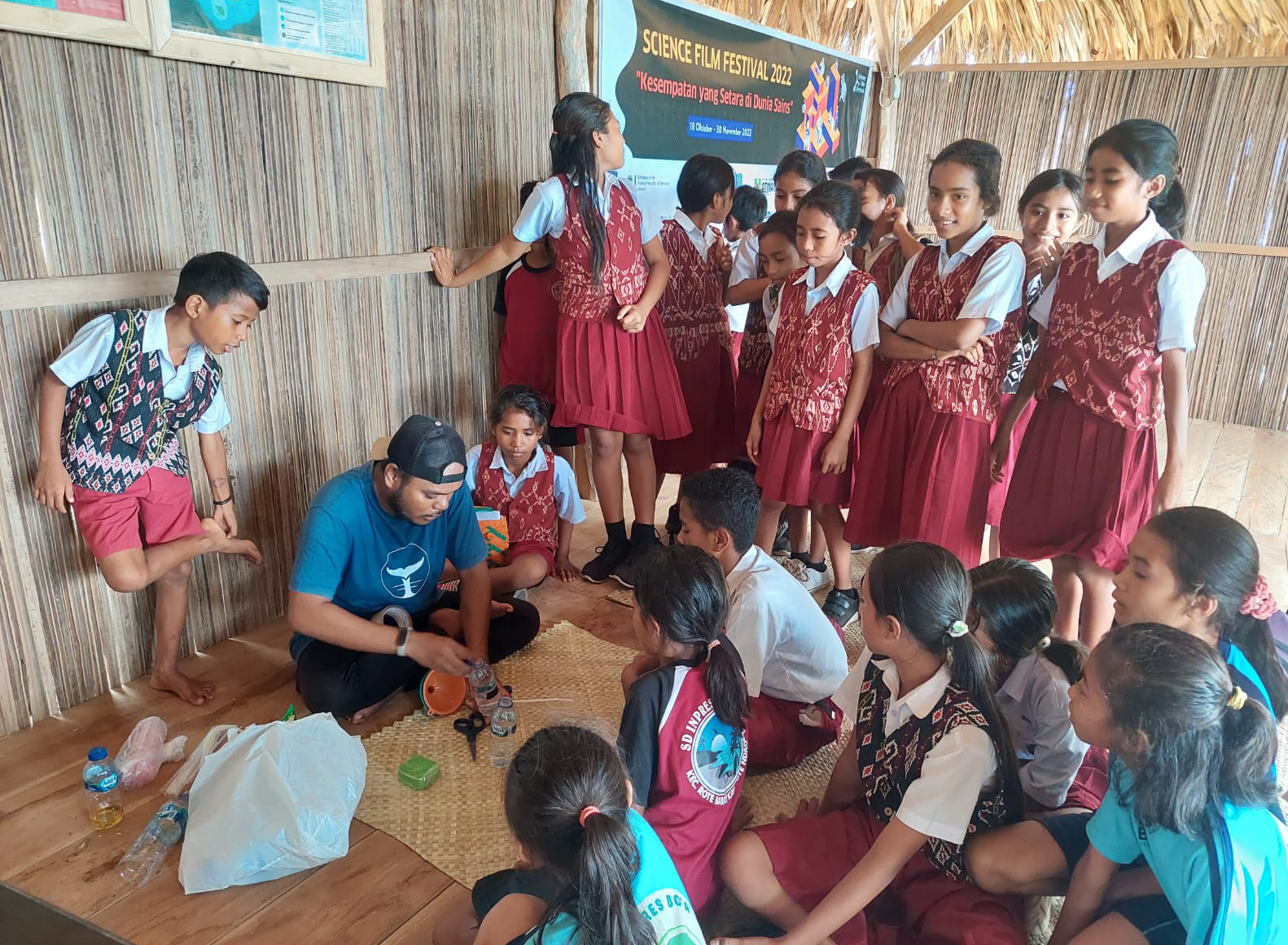
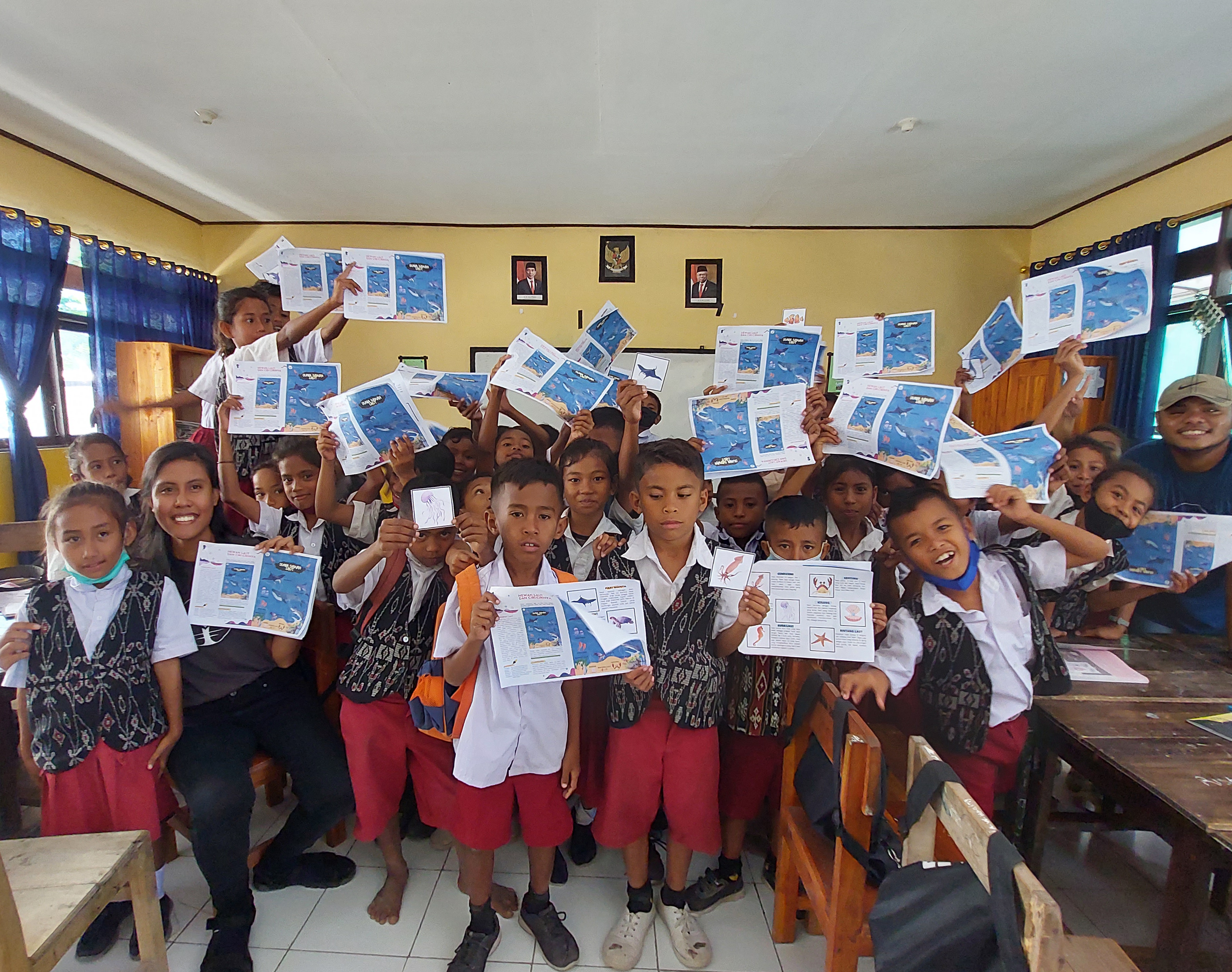
THROUGH EDUCATION
To ensure that protection of the local wildlife remains sustainable, it is crucial to ensure that future caretakers understand the importance of their natural environment.
By providing interactive extracurricular classes on marine conservation at six primary schools around West Rote and Landu Island, our Education Officer invests time in inspiring the youth and awakening their love for their ocean.
“It is my hope that our education programme can develop a mindset and understanding among students and the local communities so that the importance of conserving coastal ecosystems is no longer a new concept but a part of their everyday lives. Why? Because at the moment, the majority of the community members and school children still lack awareness on the importance of protecting and conserving marine and coastal ecosystems.”
– Elfis Adu, Education Officer (2022)
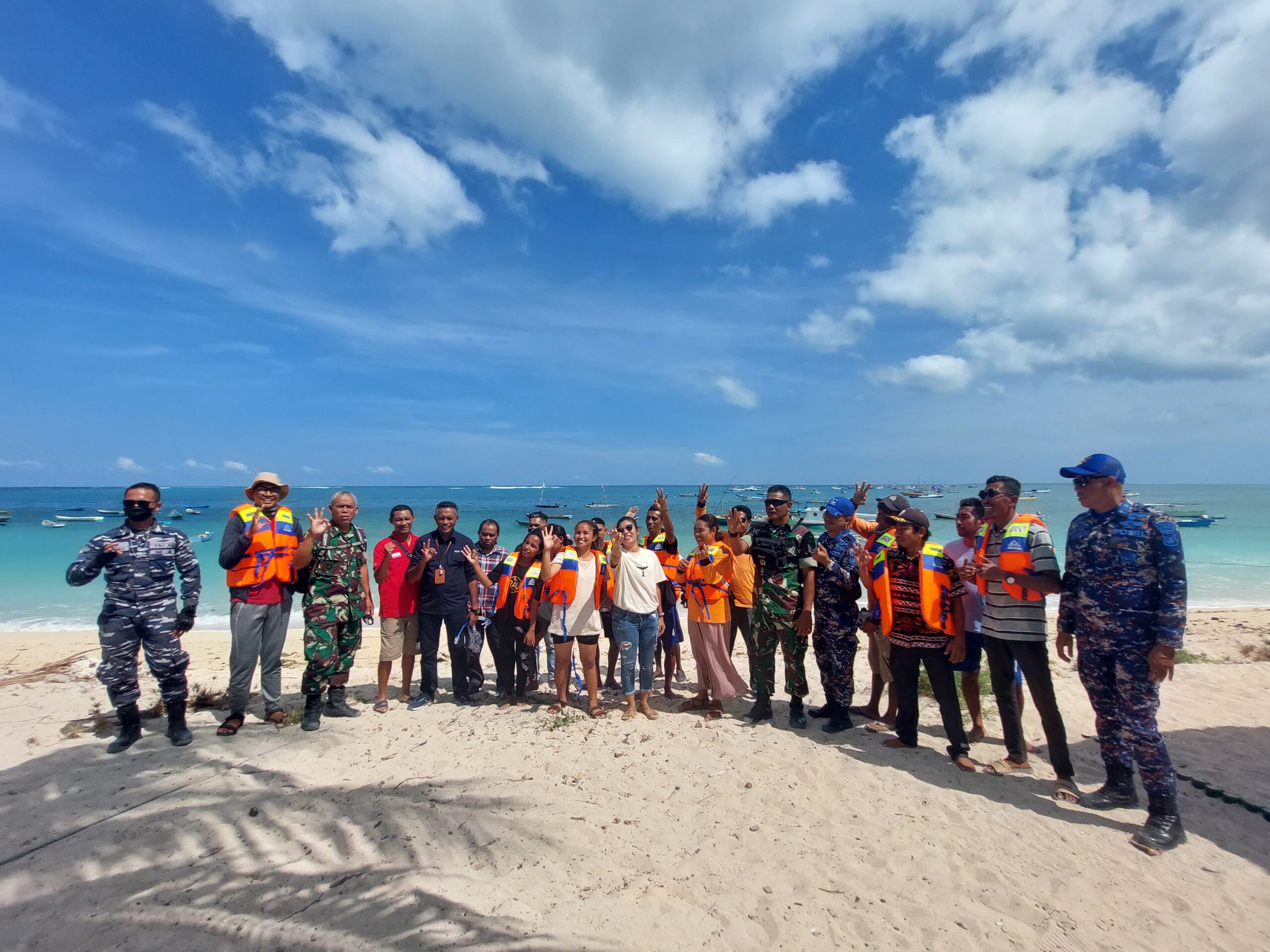
Through COMMUNITY DEVELOPMENT
Bridging scientific findings with impactful change requires the engagement of the local community. Having group discussions and workshops to make the people aware of current issues, and empowering their ability in creating change
“My hopes for our program are for the West Rote community to; gain awareness and protect their seas and coast, understand the zonations and act upon it through the protection and monitoring of their natural resources, and be actively involved in the monitoring of the conservation area. Most importantly, for the community to develop a love for their oceans, so that they are willing to conserve it as well as their coastlines.”
– Veronika Haning, Community Development Officer (2022)
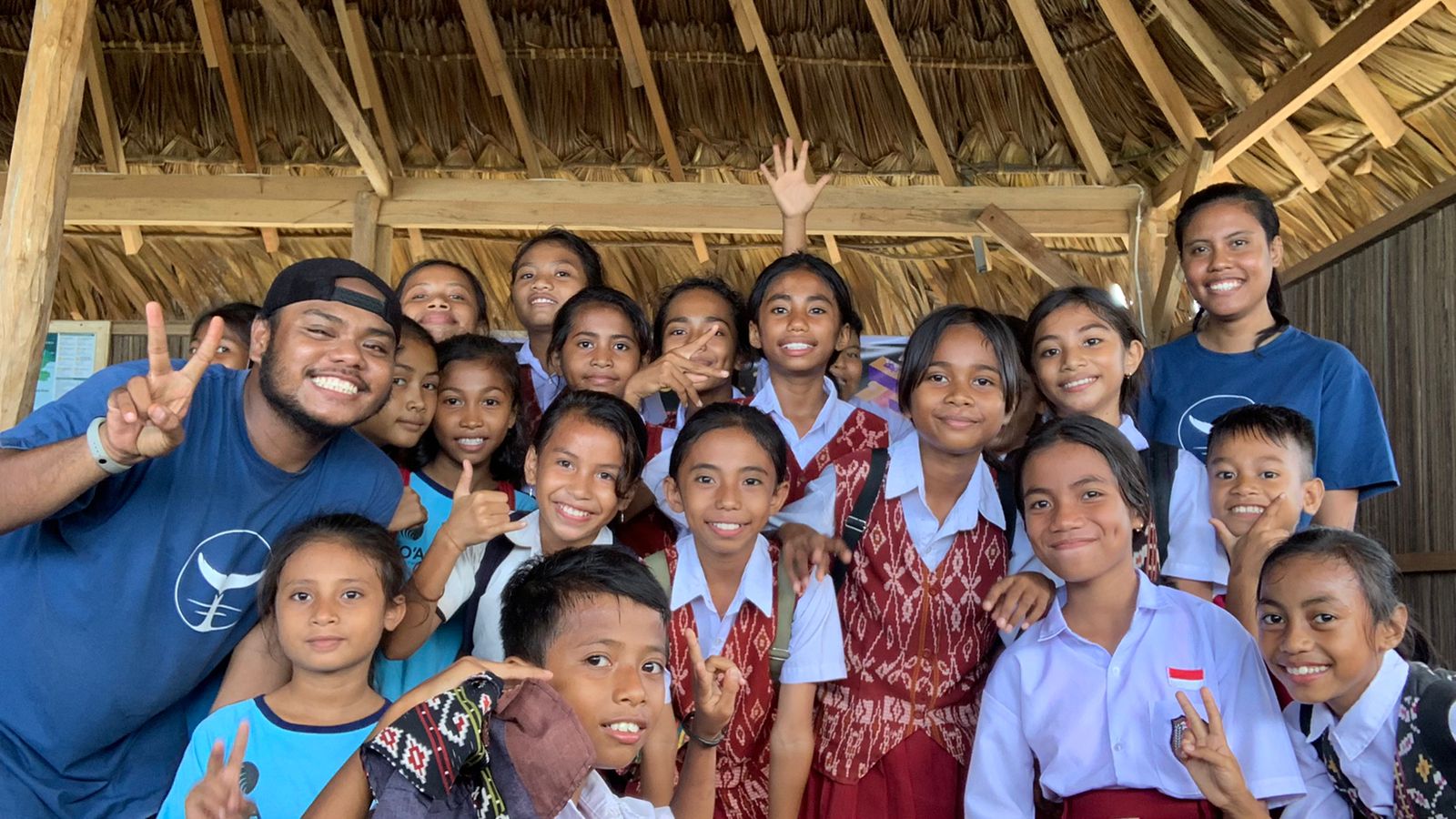
OUR PHILOSOPHY
The protection and conservation of wildlife begins through the actions of people, therefore implementing a people-based approach would serve as a valuable stepping stone in achieving the greater goal of long-term, sustainable lifestyles and conservation practices.
The management and running of this project have been carried out entirely by young Indonesian conservationists, and it is through their tireless efforts that crucial relationships have been developed, and collaborations established, moving us closer towards our goals.
